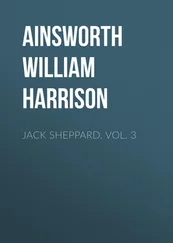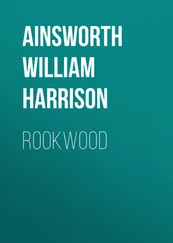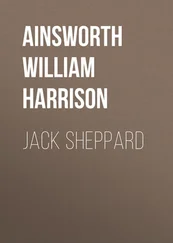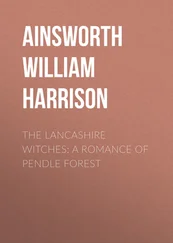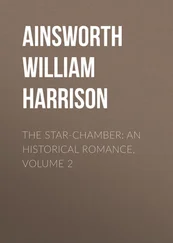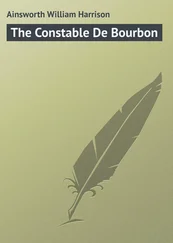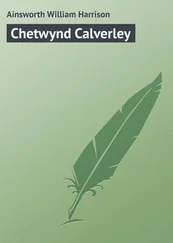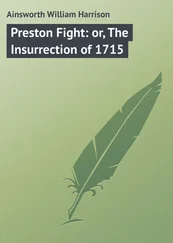W. Ainsworth - Rookwood
Здесь есть возможность читать онлайн «W. Ainsworth - Rookwood» весь текст электронной книги совершенно бесплатно (целиком полную версию без сокращений). В некоторых случаях можно слушать аудио, скачать через торрент в формате fb2 и присутствует краткое содержание. Жанр: Старинная литература, на русском языке. Описание произведения, (предисловие) а так же отзывы посетителей доступны на портале библиотеки ЛибКат.
- Название:Rookwood
- Автор:
- Жанр:
- Год:неизвестен
- ISBN:нет данных
- Рейтинг книги:4 / 5. Голосов: 1
-
Избранное:Добавить в избранное
- Отзывы:
-
Ваша оценка:
- 80
- 1
- 2
- 3
- 4
- 5
Rookwood: краткое содержание, описание и аннотация
Предлагаем к чтению аннотацию, описание, краткое содержание или предисловие (зависит от того, что написал сам автор книги «Rookwood»). Если вы не нашли необходимую информацию о книге — напишите в комментариях, мы постараемся отыскать её.
Rookwood — читать онлайн бесплатно полную книгу (весь текст) целиком
Ниже представлен текст книги, разбитый по страницам. Система сохранения места последней прочитанной страницы, позволяет с удобством читать онлайн бесплатно книгу «Rookwood», без необходимости каждый раз заново искать на чём Вы остановились. Поставьте закладку, и сможете в любой момент перейти на страницу, на которой закончили чтение.
Интервал:
Закладка:
"I will not trouble you with any lengthened description of Eleanor Mowbray. I hope, at some period or other, you may still be enabled to see her, and judge for yourself; for though adverse circumstances have hitherto conspired to separate us, the time for a renewal of our acquaintance is approaching, I trust, for I am not yet altogether without hope. But thus much I may be allowed to say, that her rare endowments of person were only equalled by the graces of her mind.
"Educated abroad, she had all the vivacity of our livelier neighbours, combined with every solid qualification which we claim as more essentially our own. Her light and frolic manner was French, certainly; but her gentle, sincere heart was as surely English. The foreign accent that dwelt upon her tongue communicated an inexpressible charm even to the language which she spoke.
"I will not dwell too long upon this theme. I feel ashamed of my own prolixity. And yet I am sure you will pardon it. Ah, those bright, brief days! too quickly were they fled! I could expatiate upon each minute—recall each word—revive each look. It may not be. I must hasten on. Darker themes await me.
"My love made rapid progress—I became each hour more enamoured of my new-found cousin. My whole time was passed near her; indeed, I could scarcely exist in absence from her side. Short, however, was destined to be my indulgence in this blissful state. One happy week was its extent. I received a peremptory summons from my father to return home.
"Immediately upon commencing this acquaintance, I had written to my father, explaining every particular attending it. This I should have done of my own free will, but I was urged to it by Mrs. Mowbray. Unaccustomed to disguise, I had expatiated upon the beauty of Eleanor, and in such terms, I fear, that I excited some uneasiness in his breast. His letter was laconic. He made no allusion to the subject upon which I had expatiated when writing to him. He commanded me to return.
"The bitter hour was at hand. I could not hesitate to comply. Without my father's sanction, I was assured Mrs. Mowbray would not permit any continuance of my acquaintance. Of Eleanor's inclinations I fancied I had some assurance; but without her mother's consent, to whose will she was devoted, I felt, had I even been inclined to urge it, that my suit was hopeless. The letter which I had received from my father made me more than doubt whether I should not find him utterly adverse to my wishes. Agonised, therefore, with a thousand apprehensions, I presented myself on the morning of my departure. It was then I made the declaration of my passion to Eleanor; it was then that every hope was confirmed, every apprehension realised. I received from her lips a confirmation of my fondest wishes; yet were those hopes blighted in the bud, when I heard, at the same time, that their consummation was dependent on the will of two others, whose assenting voices, she feared, could never be obtained. From Mrs. Mowbray I received a more decided reply. All her haughtiness was aroused. Her farewell words assured me, that it was indifferent to her whether we met again as relatives or as strangers. Then it was that the native tenderness of Eleanor displayed itself, in an outbreak of feeling peculiar to a heart keenly sympathetic as hers. She saw my suffering—the reserve natural to her sex gave way—she flung herself into my arms—and so we parted.
"With a heavy foreboding I returned to Rookwood, and, oppressed with the gloomiest anticipations, endeavoured to prepare myself for the worst. I arrived. My reception was such as I had calculated upon; and, to increase my distress, my parents had been at variance. I will not pain you and myself with any recital of their disagreement. My mother had espoused my cause, chiefly, I fear, with the view of thwarting my poor father's inclinations. He was in a terrible mood, exasperated by the fiery stimulants he had swallowed, which had not, indeed, drowned his reason, but roused and inflamed every dormant emotion to violence. He was as one insane. It was evening when I arrived. I would willingly have postponed the interview till the morrow. It could not be. He insisted upon seeing me.
"My mother was present. You know the restraint she usually had over my father, and how she maintained it. On this occasion she had none. He questioned me as to every particular; probed my secret soul; dragged forth every latent feeling, and then thundered out his own determination that Eleanor never should be bride of mine; nor would he receive, under his roof, her mother, the discountenanced daughter of his father. I endeavoured to remonstrate with him. He was deaf to my entreaties. My mother added sharp and stinging words to my expostulations. 'I had her consent,' she said; 'what more was needed? The lands were entailed. I should at no distant period be their master, and might then please myself.' This I mention, in order to give you my father's strange answer.
"'Have a care, madam,' replied he, 'and bridle your tongue; they are entailed, 'tis true, but I need not ask his consent to cut off that entail. Let him dare to disobey me in this particular, and I will so divert the channel of my wealth, that no drop shall reach him. I will—but why threaten?—let him do it, and approve the consequences.'
"On the morrow I renewed my importunities with no better success. We were alone.
"'Ranulph,' said he, 'you waste time in seeking to change my resolution. It is unalterable. I have many motives which influence me; they are inexplicable, but imperative. Eleanor Mowbray never can be yours. Forget her as speedily as may be, and I pledge myself, upon whomsoever else your choice may fix, I will offer no obstacle.'
"'But why,' exclaimed I, with vehemence, 'do you object to one whom you have never beheld? At least, consent to see her.'
"'Never!' he replied. 'The tie is sundered, and cannot be reunited; my father bound me by an oath never to meet in friendship with my sister; I will not break my vow. I will not violate its conditions, even in the second degree. We never can meet again. An idle prophecy which I have heard has said, " that when a Rookwood shall marry a Rookwood the end of the house draweth nigh." That I regard not. It may have no meaning, or it may have much. To me it imports nothing further than that if you wed Eleanor, every acre I possess shall depart from you. And assure yourself this is no idle threat. I can, and will do it. My curse shall be your sole inheritance.'
"I could not avoid making some reply, representing to him how unjustifiable such a procedure was to me, in a case where the happiness of my life was at stake; and how inconsistent it was with the charitable precepts of our faith, to allow feelings of resentment to influence his conduct. My remonstrances, as in the preceding meeting, were ineffectual. The more I spoke, the more intemperate he grew. I therefore desisted. But not before he had ordered me to quit the house. I did not leave the neighbourhood, but saw him again on the same evening.
"Our last interview took place in the garden. I then told him that I had determined to go abroad for two years, at the expiration of which period I proposed returning to England; trusting that his resolution might then be changed, and that he would listen to my request, for the fulfilment of which I could never cease to hope. Time, I hoped, might befriend me. He approved of my plan of travelling, requesting me not to see Eleanor before I set out; adding, in a melancholy tone—'We may never meet again, Ranulph, in this life; in that case, farewell for ever. Indulge no vain hopes. Eleanor never can be yours, but upon one condition, and to that you would never consent!'—'Propose it!' I cried; 'there is no condition I could not accede to.'—'Rash boy!' he replied; 'you know not what you say; that pledge you would never fulfil, were I to propose it to you; but no—should I survive till you return, you shall learn it then—and now, farewell'—'Speak now, I beseech you!' I exclaimed; 'anything, everything—what you will!'—'Say no more,' replied he, walking towards the house; 'when you return we will renew this subject; farewell—perhaps for ever.' His words were prophetic—that parting was for ever. I remained in the garden till nightfall. I saw my mother, but he came not again. I quitted England without beholding Eleanor."
Читать дальшеИнтервал:
Закладка:
Похожие книги на «Rookwood»
Представляем Вашему вниманию похожие книги на «Rookwood» списком для выбора. Мы отобрали схожую по названию и смыслу литературу в надежде предоставить читателям больше вариантов отыскать новые, интересные, ещё непрочитанные произведения.
Обсуждение, отзывы о книге «Rookwood» и просто собственные мнения читателей. Оставьте ваши комментарии, напишите, что Вы думаете о произведении, его смысле или главных героях. Укажите что конкретно понравилось, а что нет, и почему Вы так считаете.

